Hi there, fellow dog lovers! I’m Dr. Candy, and today we’re going to talk about a topic that’s near and dear to my heart – Poodle Dental Health. As a holistic veterinarian, I believe that your pet’s oral health is a key component of their overall well-being. Just like in humans, poor dental hygiene in poodles can lead to a host of health problems, from gum disease to heart conditions.
Unfortunately, dental health is often overlooked in our furry friends. But I’m here to change that! Let’s shine a spotlight on the importance of dental care for our poodles. We’ll discuss common dental issues, conventional and holistic treatments, and even my personal recommendations for dental chews and products. So, grab your poodle and let’s dive into the world of Poodle Oral Care together! Remember, a healthy mouth equals a healthy pooch!
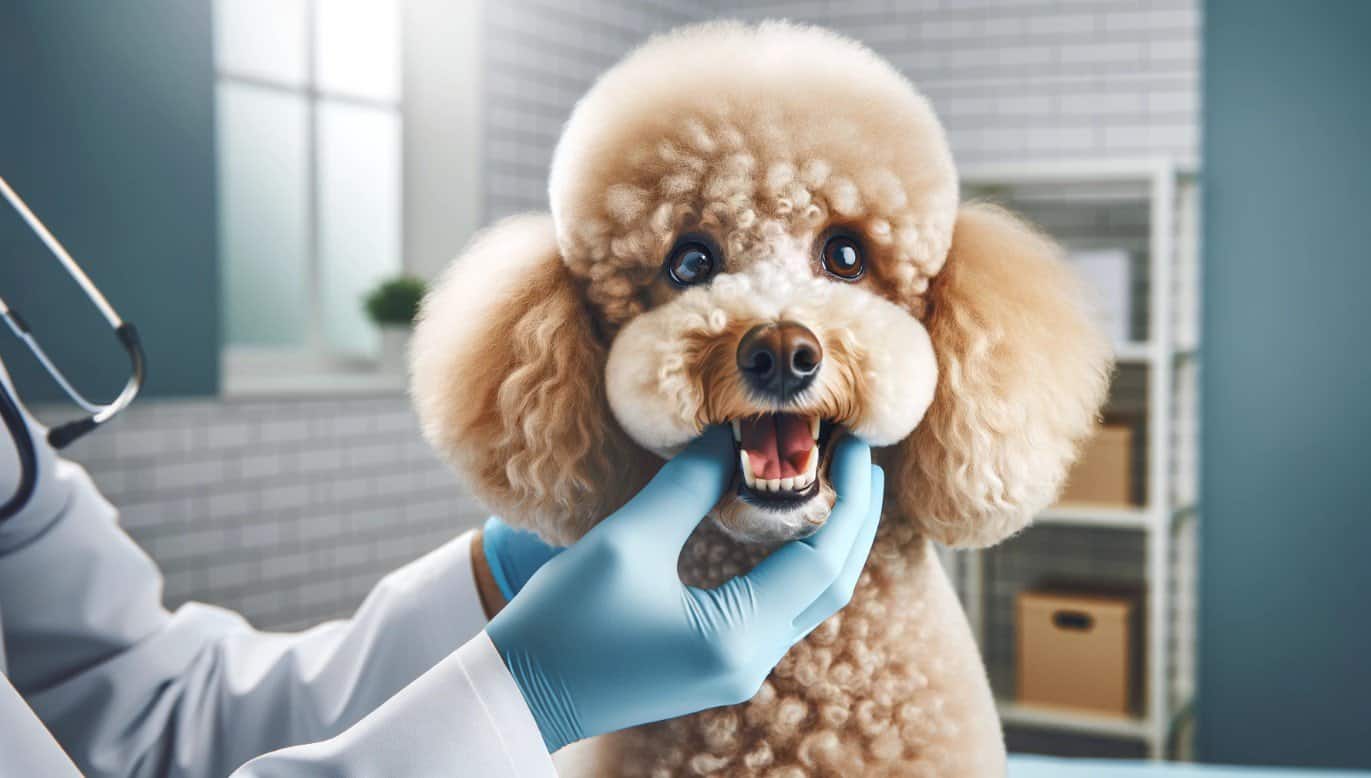
Recognizing the Signs of Dental Disease in Poodles
As a dedicated poodle parent, your fur baby’s health is undoubtedly your top priority. But did you know that dental health is a critical part of their overall well-being? Many dog owners overlook this aspect, which can lead to severe problems down the line. Understanding the signs of dental disease in poodles is the first step to ensuring they maintain a glowing, healthy smile.
One of the most common signs of dental disease in poodles is bad breath. While it’s normal for your poodle to have a certain doggy breath, a particularly foul odor could be a sign of dental disease. This unpleasant smell is often caused by bacteria buildup in the mouth.
Loss of appetite or difficulty eating can also be a sign of dental problems. If your poodle is refusing food, dropping food from their mouth, or showing signs of discomfort while eating, it could be due to tooth pain or gum disease.
Additionally, pay attention to any changes in your poodle’s behavior. Are they pawing at their mouth more than usual? Are they less playful or do they seem unusually irritable? These could be signs of oral discomfort.
Physical changes are another thing to watch out for. Look for signs such as red, swollen gums, yellow or brown tartar on the teeth, loose or missing teeth, or bleeding from the mouth. These are all potential signs of dental disease in poodles and should prompt a visit to the vet.
Remember, prevention is always better than cure. Regularly brushing your poodle’s teeth, providing them with dental chews, and scheduling regular dental check-ups can go a long way in maintaining their oral health. However, if you notice any of these signs, it’s crucial to seek veterinary care immediately. Early detection and treatment of dental disease can save your poodle from unnecessary pain and health complications.
Common Dental Health Issues In Poodles
As a veterinarian, I’ve seen a variety of dental health issues in poodles. Poodle Dental Health is a crucial aspect of their overall well-being, and neglecting it can lead to serious complications. Here are some of the most common problems I’ve encountered:
- Periodontal Disease: This is the most common dental issue among poodles. Plaque and tartar build-up can cause inflammation in the gums, which can lead to infection and tooth loss if not treated promptly.
- Bad Breath: While it’s normal for dogs to have a certain level of ‘doggy breath’, excessively foul breath can be a sign of underlying dental problems. It can indicate the presence of bacteria, decaying teeth, or other oral diseases.
- Broken or Fractured Teeth: Poodles are active dogs and they love to chew. This can sometimes lead to broken or fractured teeth, which can cause pain and difficulty eating.
- Gingivitis: This is an inflammation of the gums, usually caused by a buildup of plaque. It can cause redness, swelling, and bleeding gums. If left untreated, it can progress to periodontal disease.
Regular check-ups and a good dental hygiene routine can help prevent these issues and ensure good Poodle Dental Health. Remember, your poodle’s dental health is an important part of their overall health and happiness.
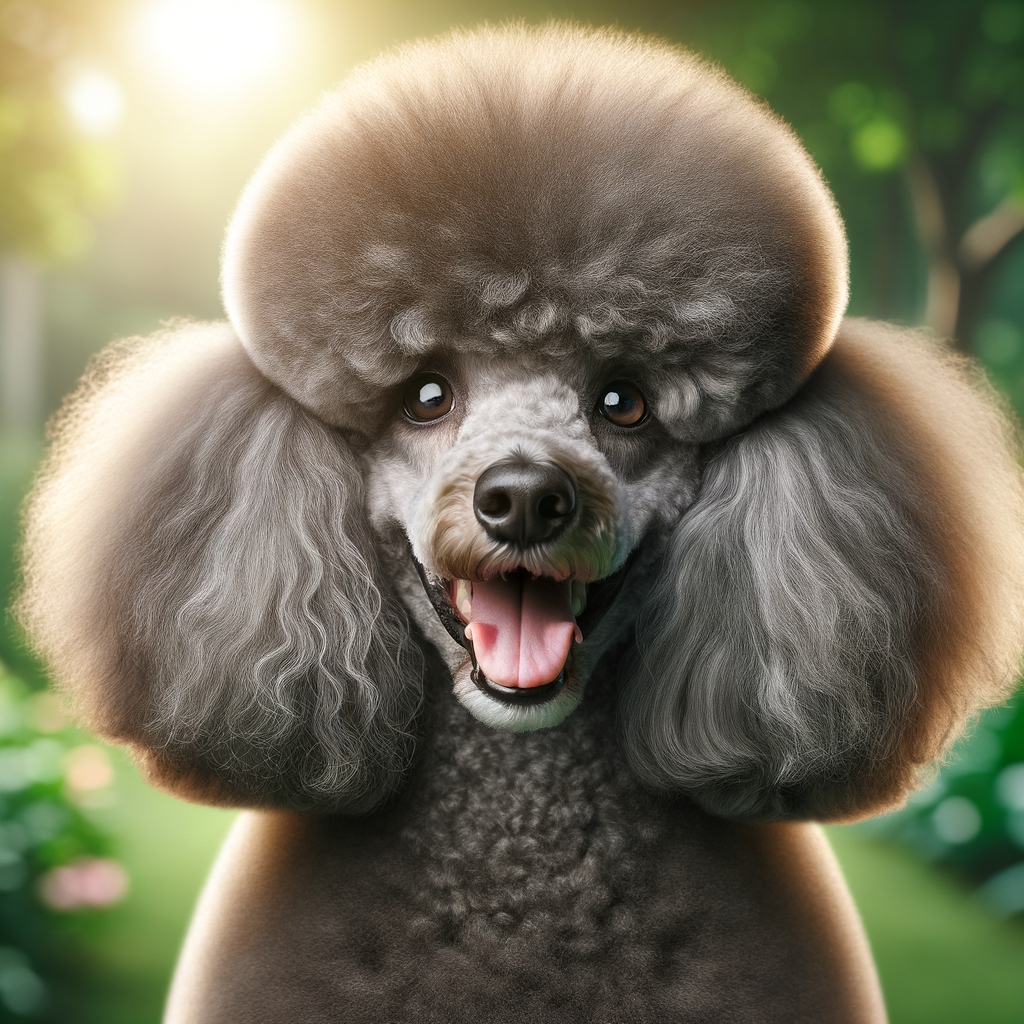
Conventional Dental Health Treatments
When it comes to Poodle Dental Health, there are a few conventional treatments that can assist in maintaining your furry friend’s oral hygiene.
Anesthetic Dental Cleanings
One of the most common procedures involves anesthetic dental cleanings. This process is typically done by a veterinarian, where your poodle is put under anesthesia. The vet then thoroughly cleans the dog’s teeth, removing any plaque or tartar build-up that has accumulated. This method is highly effective, and can significantly improve your poodle’s oral health. However, it’s important to note that this procedure should be done regularly to maintain its effectiveness.
Potential Individual Health Obstacles
While anesthetic dental cleanings are a great tool for maintaining your poodle’s dental health, there are potential health obstacles to consider. For poodles with heart problems, undergoing anesthesia can pose a risk. Similarly, some dogs may have drug sensitivities that could lead to complications during the procedure.
Seizures are another concern. If your poodle has a history of seizures, the anesthesia used during dental cleanings could potentially trigger an episode. Therefore, it’s crucial to discuss your poodle’s health history with the vet before proceeding with anesthetic dental cleanings.
In addition, extreme age can also be a factor. Older poodles may not be as resilient to anesthesia as their younger counterparts. So, it’s important to take their age and overall health into consideration.
However, don’t let these potential obstacles deter you. Regular dental cleanings are a crucial part of your poodle’s oral care routine. By working closely with your vet, you can find a solution that is safe and effective for your furry friend.
Remember, every poodle is unique, and what works for one may not work for another. It’s crucial that you and your vet work together to come up with a dental health plan that is tailored to your poodle’s individual needs.
Diet: Low Carbs, Avoid Added Sugars, Enzymes In Fresh Food
First and foremost, diet plays a crucial role in your poodle’s dental health. A diet high in carbohydrates and sugars can lead to plaque build-up, which can eventually turn into tartar and cause gum disease. Therefore, it’s essential to provide your poodle with a low-carb diet that’s free from added sugars.
- Low-carb diets: These diets help reduce plaque build-up, which is a leading cause of dental disease in poodles. Foods like lean meats, vegetables, and certain fruits are all excellent low-carb options.
- Avoid added sugars: Sugars can stick to your poodle’s teeth and lead to plaque formation. Be sure to check the labels of your dog’s food and treats to ensure they’re free from added sugars.
- Enzymes in fresh food: Fresh foods like apples, carrots, and celery can act as natural teeth cleaners for your poodle. They contain enzymes that help break down plaque and keep your dog’s mouth healthy.
Oral Health Specific Probiotics
Probiotics are beneficial bacteria that can help balance the microbiome in your poodle’s mouth. These good bacteria can outcompete the harmful ones that cause dental disease, leading to improved oral health.
One product I highly recommend is Probiora for Dogs, an oral health targeted probiotic. This unique formula is specifically designed to support your poodle’s dental health by promoting a healthy balance of bacteria in their mouth. It’s easy to use – you just sprinkle it on your dog’s food, and the beneficial bacteria go to work promoting dental health.
Remember, a holistic approach to poodle dental health is about more than just brushing and professional cleanings. It’s about providing your poodle with the right diet and beneficial supplements like probiotics to support their oral health from the inside out. By focusing on these areas, you can help ensure your poodle has a healthy mouth and a happy life.
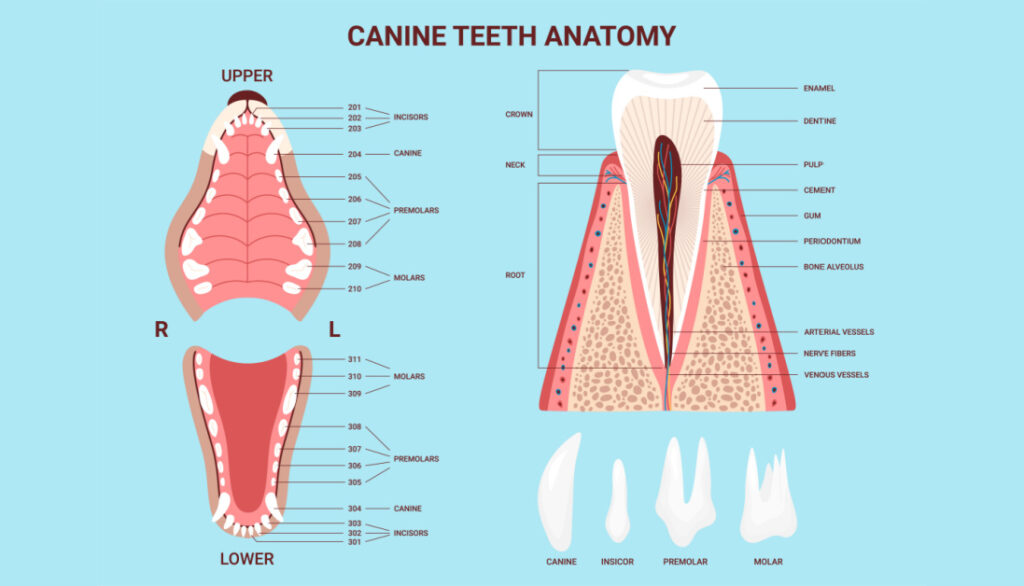
Recommended Dental Chews & Products For Poodles
As a poodle parent, it can be overwhelming to sift through the countless dental chews and products on the market. Unfortunately, not all of these products are as beneficial as they claim to be.
The Failure of Commercially Promoted Dental Chews
It’s important to note that commercially promoted dental chews often fall short when it comes to truly promoting Poodle Dental Health. Many of these chews contain artificial ingredients, added sugars, and unhealthy fillers that can be detrimental to your poodle’s overall health. Moreover, they often only clean the surface of the teeth, failing to reach harmful plaque and tartar buildup below the gumline.
Drinking water additives, another commonly recommended product, can also cause more harm than good. While they may help to freshen breath, they can disrupt the balance of beneficial bacteria in your dog’s gut, leading to digestive issues.
Dr. Candy’s Recommended Dental Chews & Products
For a truly effective approach to your poodle’s dental health, it’s recommended to turn to single source natural proteins. These not only help clean your poodle’s teeth but also provide them with beneficial nutrients.
Tendons
Tendons are a fantastic natural chew for your poodle. They are tough and fibrous, which helps to scrape off plaque and tartar from your dog’s teeth. Plus, they are a good source of protein and collagen, promoting good joint health.
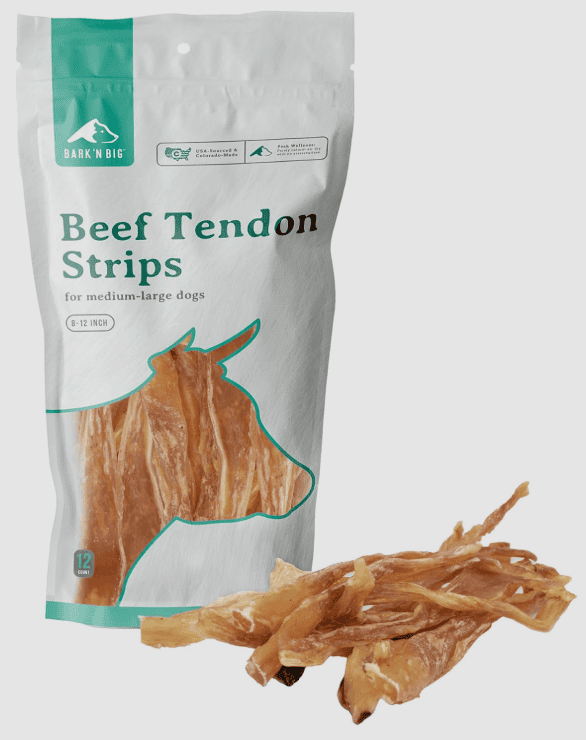
Raw Marrow Bones
Raw marrow bones are another excellent choice for maintaining your poodle’s dental health. They are a natural source of calcium and phosphorus, which are essential for healthy teeth and bones. Furthermore, the act of gnawing on bones can help to clean your dog’s teeth and gums.
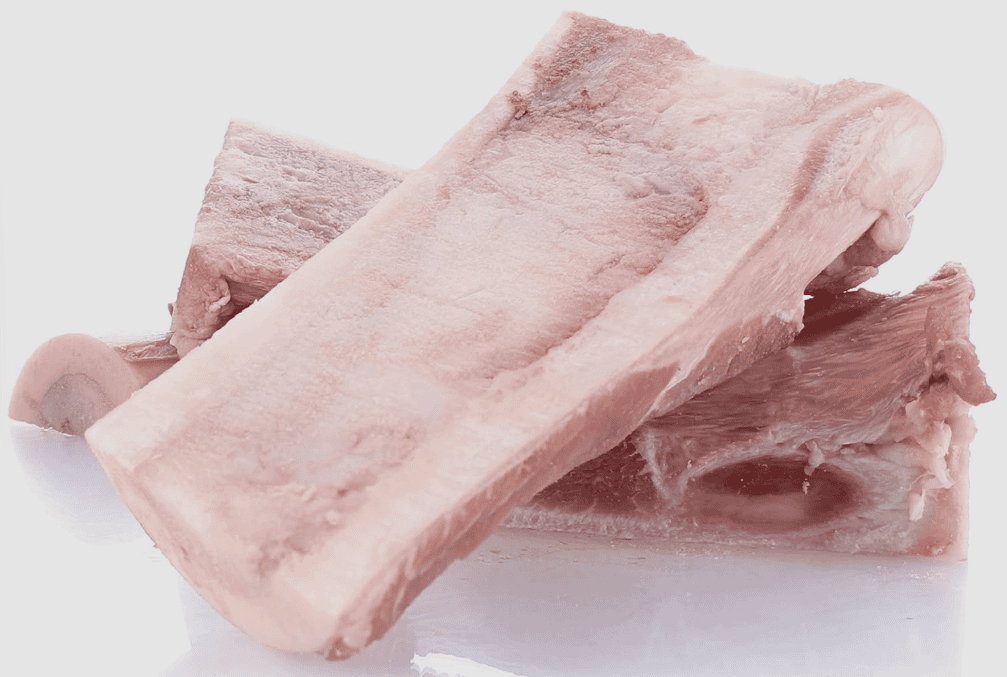
Bully Sticks
Bully sticks are made from 100% beef muscle, providing a natural and digestible chew for your poodle. They can effectively remove plaque and tartar and are a good source of protein. However, always supervise your dog while they’re chewing on a bully stick to prevent any choking hazard.
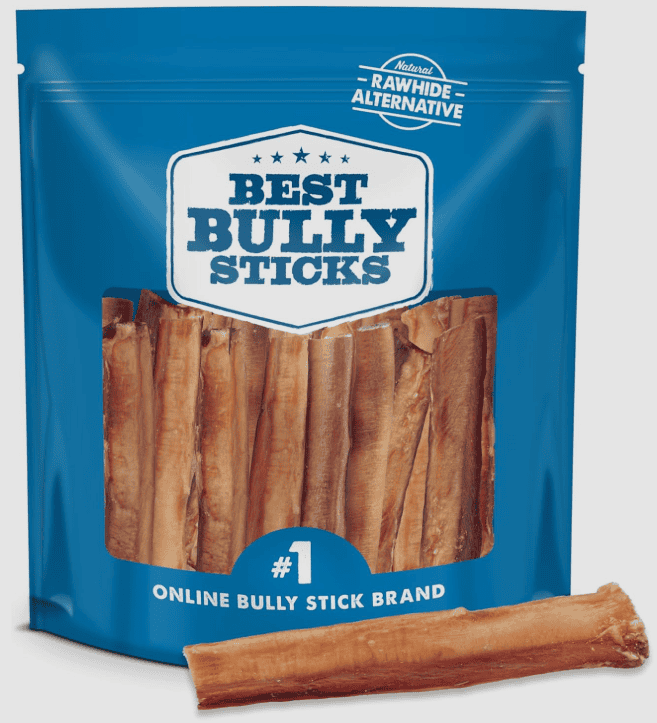
Remember, it’s not just about what your poodle chews, but also about regular dental check-ups and a holistic approach to their diet and lifestyle. With the right choices, you can ensure your poodle’s smile remains bright and healthy!
Frequently Asked Questions
1. How often should I brush my dog’s teeth?
It is recommended to brush your dog’s teeth at least 2-3 times a week. Regular brushing helps prevent plaque buildup and keeps their breath fresh.
2. Can I use human toothpaste to brush my dog’s teeth?
No, you should never use human toothpaste on your dog. Human toothpaste contains ingredients that can be harmful if swallowed by dogs. Always use toothpaste specifically formulated for dogs.
3. My dog refuses to let me brush his teeth. What should I do?
If your dog is resistant to teeth brushing, start by introducing them to the toothbrush and toothpaste gradually. Use positive reinforcement and rewards to make the experience more enjoyable. You can also consult with a veterinarian for alternative dental care options.
4. Are dental chews and treats effective in combating bad breath?
Dental chews and treats can be helpful in maintaining good oral hygiene and reducing bad breath. However, they should not be considered a substitute for regular teeth brushing. Consult with your vet to find the most suitable dental products for your dog.
5. What are the signs of dental problems in dogs?
Common signs of dental problems in dogs include bad breath, swollen or bleeding gums, yellow or brown tartar buildup, difficulty eating, and pawing at the mouth. If you notice any of these signs, it is important to schedule a dental check-up with your veterinarian.
